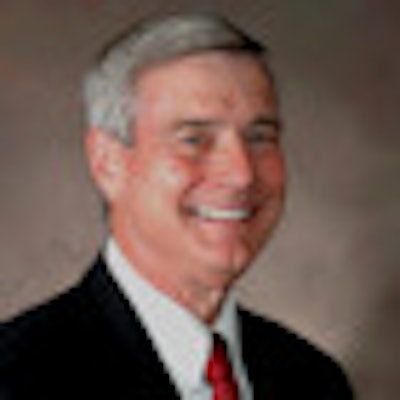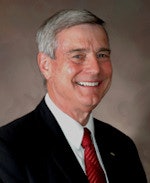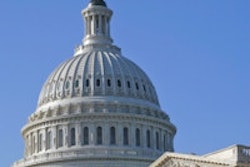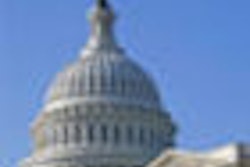
Ronald Tankersley, D.D.S., who practices oral and maxillofacial surgery in Newport News, Williamsburg, and Hampton, VA, picked up the reins of the ADA in October 2009 as the debate over healthcare reform and the ADA's effort to influence the outcome were both in full swing. In an interview with DrBicuspid.com, the newest ADA president addresses the association's goals and challenges for 2010 and beyond.
DrBicuspid.com: How well do you feel you've achieved your goals in the healthcare reform process so far?
 |
|
ADA President Ronald Tankersley, D.D.S. |
Dr. Tankersley: Well, there are a few aspects of the current proposed legislation that we are happy with, but in general we are really disappointed that Congress is talking about spending almost $1 trillion for healthcare reform, and they have for all practical purposes completely left out oral health. They have done nothing to create a stronger oral health infrastructure to take care of those people who can't access the market. They have done nothing to adequately fund Medicaid to take care of low-income children, low-income adults, and certainly the low-income elderly.
The solution is community-based efforts for prevention, and oral health literacy. Because we know if we did this appropriately, if we were aggressive about that, we wouldn't even have to have this conversation about oral healthcare. I guess I understand that we've always been treated sort of subordinate to medicine, but we were hoping we would be more successful because of all the attention that's been given to oral health.
DrBicuspid.com: What went wrong?
Dr. Tankersley: I think oral healthcare is such a complex, expensive issue that we just got shoved to the side. We're already discussing how to get our foot back in the door and get some better oral health provisions to the public.
DrBicuspid.com: Where do you think you can make inroads?
Dr. Tankersley: People seem to understand the insurance industry should have the same antitrust provisions as most other businesses, so they will actually be competitive, which we think will lower premiums and make dental benefits and health benefits more affordable. Even if it doesn't get through in the current healthcare reform bills, we might have support to get that done independently later. And of course we can't give up on getting the Medicaid system and the public health system up to speed.
DrBicuspid.com: What do you think you could do differently?
Dr. Tankersley: I think our best chance is to form coalitions with these other groups that want the same thing we do. I think it's time for us to break out of those silos between all the specialty organizations, the educators, the public health community, and so forth, because I know that we all want the same thing and we just need to get together to accomplish it.
DrBicuspid.com: Some new oral health organizations are on the scene now. Does that complicate your job?
“I think oral healthcare
is such a complex, expensive issue that
we just got shoved to the side.”
Dr. Tankersley: We are the umbrella that includes the entire dental family. We have the educators, the examiners, the public health people, the military dentists. And we've known that oral health in this country had problems for years and years.
But you are right. In the past, you didn't have anybody else speaking for oral health. What has happened certainly during my lifetime is that now the public and the policymakers are becoming aware that indeed oral health is a problem. So there are some other voices out there. What I'd like to do is collaborate with those people so that we actually are helping one another as a stronger voice. Because even if you put everybody involved in oral health in one bucket, we still are a small group of people.
DrBicuspid.com: Aren't some of these groups taking opposite positions to the ADA, at least on the issue of dental health aide therapists (DHATS)?
Dr. Tankersley: If we don't do something to build the infrastructure to provide dentistry, it doesn't matter who the providers are, it doesn't matter whether they are dentists or DHATS or hygienists. We're sort of disappointed that with all the different aspects to access to oral health so much of the discussion is centered on this one issue. We all really want the same thing.
DrBicuspid.com: Do you mean access to oral health?
Dr. Tankersley: Absolutely. If you look at these groups, they all want access to quality, safe, oral health. I don't think some of the other groups have looked at it as long as we have, and I don't think they've looked at it as comprehensively as we have. But I don't think they have any bad intentions.
DrBicuspid.com: Do you ever feel that you have conflicting missions in that you need to protect the interests of dentists, and at the same time you want to provide more oral care to people who don't have money?
Dr. Tankersley: Not really. We are certainly perceived by some to have a conflicting mission. But the truth is that it's in the interest of all dentists for us to have a strong public health system and a strong private system: the public health system to take care of those who can't access the private system and the private system so we can have the innovations and efficiencies that come from the marketplace. Working together is how we can take care of the entire population in the best way.
DrBicuspid.com: Another issue that's been talked about lately is the question of other specialties within dentistry. In the course of our reporting, many people have said they'd like to see, for example, an implant specialty, a geriatric specialty, or an anesthesia specialty. Are any conversations going on within the ADA around those questions?
Dr. Tankersley: It's been a front burner item in the past. Right now, it's probably subservient to healthcare reform. I understand the frustrations. I'm an oral surgeon. I do anesthesia. I'm very familiar with the people who want an anesthesia specialty. I've been doing implants since 1968, so I'm very familiar with the discussion on implants. Currently, our policy is that in order to be designated a specialty, there has to be an actual demand for those services that isn't being met by the current general dentist and specialty network. There is also the demand that you limit your practice only to that area of dentistry.
That's where a lot of people who would like be specialists run into difficulty. It's not that they don't have incredible expertise and we don't value what they do; it's just that most of the time what they do is being done by other specialties just as well, and/or they don't limit their practice to those particular special areas. But one thing we have done is that we have made provisions that you can have special interests in dentistry that don't reach specialty status. One of those that we now have credentials for is dental anesthesia.
DrBicuspid.com: So after bringing all the oral health organizations together, what is your second priority?
Dr. Tankersley: There isn't one. The reason we get short-changed in healthcare reform, the reasons we have some public perceptions that are less than optimal for us, is because we don't tell our stories well. We're basically already doing what the policymakers want done in healthcare. We're patient-centered, we're preventive-oriented, we use efficient delivery teams, and so I think the whole deal is for us all to get together, understand that we want the same thing, and go out and tell our story better.
Copyright © 2010 DrBicuspid.com



















